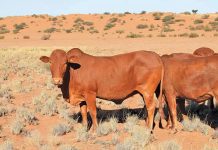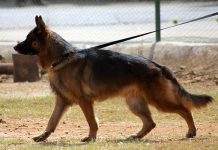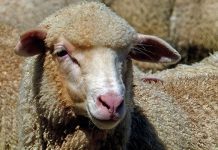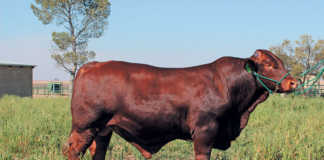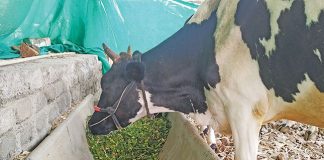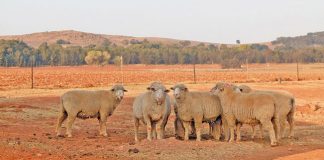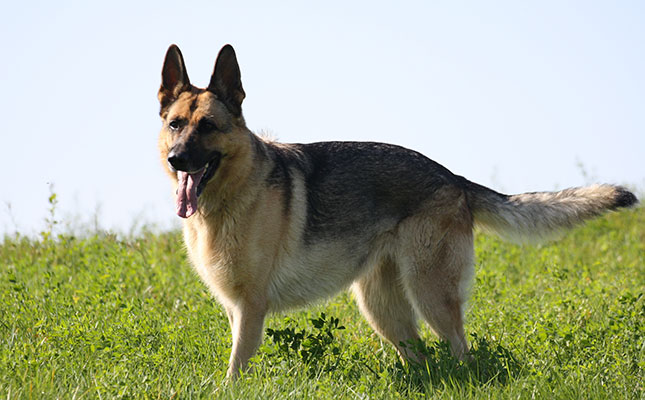
Photo: Pxhere
Statistics show that the homes of people who own large guard dogs are less likely to be broken into.
On farms, dogs serve many purposes: they make wonderful family pets, they can be used for personal protection, they guard the property and livestock, and they can also be used for herding purposes.
Which breed to choose?
Before choosing a dog, there any many things to consider. As valuable as they can be, if the wrong dog is selected for your particular setting and isn’t given the proper training for the specific task, things could turn out badly, warns Dr Elize van Vollenhoven, senior lecturer of ethology (animal behaviour), law and ethics at the University of Pretoria’s Veterinary Faculty.
Van Vollenhoven subspecialised in animal-welfare science, law and ethics at the European College of Animal Welfare and Behaviour; specialised in veterinary animal welfare and behaviour in South Africa; and is a certified canine-rehabilitation practitioner.
READ Animal health: putting together a first-aid kit for livestock
“The answer to the question of which dog is best for your home or farm depends largely on your preference. You must like the dog you choose and be able to form an emotional bond with it.
“In most cases, if a dog perceives itself to be part of the family, such a dog will automatically guard and protect the family,” she says.
Van Vollenhoven recommends obtaining as much information as possible about the various dog breeds available, as certain breeds are more suited to certain tasks than others are. For example, some breeds make excellent guard dogs or faithful companions, while others are exceptional ratters or dutiful herders. In addition, some are calm and relaxed, while others are highly energetic.
“All dogs have certain traits in common; use and reinforce them in your dog,” she adds.
According to Van Vollenhoven, dogs are generally pack animals, and have excellent senses of hearing and smell. “And because they are territorial, with even basic socialising and training, they will defend the house and family if they perceive their territory to be under threat.”
She advises prospective buyers to be mindful of the features in a puppy or adult dog that could be detrimental to its health and well-being: “Look at the behaviour of the parents; that should give you a fair indication of how the puppy will act. Try to find out as much as possible about the dog’s background.”
Breed standard
On its website, the Kennel Union of Southern Africa (KUSA) describes a breed standard as the guideline that specifies the ideal characteristics, temperament and appearance of a particular breed.
It also ensures that the breed is fit for a specific function. KUSA warns that the practice of advertising and selling puppies on websites is being exploited by opportunists, scammers and irresponsible breeders who are more interested in making money than in caring for their puppies’ health and welfare.
Therefore, Van Vollenhoven cautions buyers to be wary of breeders who have a wide selection of puppies available all year round and who sell “pedigree” puppies at below-average prices.
KUSA classifies and groups breeds according to the purposes for which they were bred. The groups are as follows and include, among others:
- Hounds – beagle, bloodhound, Rhodesian ridgeback, and whippet;
- Gundogs – golden retriever, Labrador retriever, Irish setter, and Hungarian vizsla;
- Terriers – Airedale terrier, Staffordshire bull terrier, Jack Russell terrier, and Scottish terrier;
- Herding dogs – Belgian Malinois, border collie, Australian cattle dog, and Shetland sheepdog;
- Utility dogs – Dalmatian, poodle, schnauzer, and English bulldog;
- Working dogs – Doberman Pinscher, boxer, German Shepherd, and Great Dane; and
- Toy dogs – Italian greyhound, Maltese, Chihuahua, and pug.
Van Vollenhoven points out that a guard dog for the home or farm should be chosen from the working-dog group. She adds that it would be wise to keep a smaller dog alongside bigger ones: “Smaller dogs are often very alert and can act as alarms.”
Todd Lutman, owner of K9 Tracking Protection Training near Lephalale in Limpopo, says although one must look at specific breeds for certain tasks, it is wise to also look at individual dogs.
“A dog must be carefully selected. It is crucial to consider your needs; do you merely want a companion or pet, or are you looking for a guard dog that can protect you? It is also important to decide whether you want a puppy or an adult dog, a male or a bitch.
“The dog’s personality should fit with the family and individuals. Proper breeding is also essential, and puppies should be carefully selected from top-quality genetics.”
Lutman stresses that potential owners must identify the role they will need the dog to fulfil before acquiring one. For example, he says, if you’re looking for a guard dog, it needs to bear a unique type of temperament and display the kind of physical strength that is needed to ward off intruders.
“They need not show aggressiveness, but they must be agile,” he adds.
According to dog trainers and behavioural experts, certain breeds are favoured for the sole purpose of offering protection due to their unique characteristics.
Anemarí Pretorius, former chairperson of the South African Boerboel Breeders’ Society, points out that although dog breeders will favour the breeds they work with, there are certain traits that make for a good guard dog.
“There are many accounts of farmers using Boerboels for livestock protection and course tracking, but knowing the breed as well as I do, I’m not convinced that Boerboels, which are generally kept for protection, could take over the work of sheepdogs.”
Training is essential
“A puppy’s brain is about 80% developed at around 16 to 20 weeks old. At this age, it will have a pretty distinct personality, and you’ll be able to tell if the dog will be adventurous, timid, bossy, quiet, or nervous,” points out Lutman.
READ Breeding bobaas boerboels
He adds, however, that while a dog may have specific personality traits, these aren’t necessarily set in stone. Positive-reinforcement training can be used to help teach and strengthen a puppy’s personality traits, making it more likely that they will carry them through into adulthood, clarifies Van Vollenhoven.
Huge responsibility
Owning a dog comes with a lot of responsibility, and even more so if you use one for a specific task, says Lutman. “Owning a dog, especially a guard dog, requires time, effort and commitment. Guard dogs are working dogs and they should know what their job is. They must also be properly socialised and trained.”
Pretorius agrees: “Any living creature, human or dog, needs to be trained on how to act and react under various conditions. Dogs must be trained and socialised thoroughly, or you’ll be left with a stubborn dog that you can’t control.
“You need to raise a well-adjusted and balanced dog. It is your ongoing responsibility as the owner to ensure that your dog is kept safe and healthy, and is properly trained. You’ll only be able to control your dog around children or people it is unfamiliar with if you train it adequately.”
Lutman says: “We train dogs for personal protection, mantrailing, antipoaching and
anti-stock-theft, as well as bird and blood-spoor trailing for hunting. They are also trained in obedience. Our dogs are house- and vehicle-trained, so they can accompany and protect you wherever you are, whether that’s in your car or house, while walking outdoors, or when you’re on your farm,” he says.
According to him, protection training is one of the most demanding and difficult dog-training tasks.
“Most dogs can learn obedience, scent work or agility, but it takes more effort to train them to protect their handlers,” he explains.
“The majority of dogs will try to avoid threatening situations, and might run away and leave their handler or owner to fend for themselves,” continues Lutman.
The reason for this lies in the dog’s temperament, he says. “A great deal of protection training is based on the dog’s ability to deal with stress, and this must be done from a young age. To be successful, dog owners need to understand what drives their dog’s behaviour,” he remarks.
Temperament
According to Lutman, in most instances, a dog’s temperament when performing
protection work is determined by their prey drive; defensive drive; fight drive; and avoidance behaviour. He adds that dogs should be trained in real-life settings, as this will prepare them for real-life situations, and points out that training should be an ongoing activity.
“Dogs need daily sessions with owners or trainers in obedience, protection, and bite work to maintain their skills.”
READ How to keep your farm secure while you’re away on holiday
Van Vollenhoven believes that it is essential for a dog’s owner to be actively involved in the training process.
“The owner must learn how to control his or dog, and there must be a bond of trust between them.”
She explains that if an owner hasn’t learnt how to give commands to or handle their dog, and if the two haven’t developed a trusting relationship, there is a good chance that the dog won’t listen to its owner in a stressful situation.
“You want a focused and motivated dog that acts on command, as opposed to a bundle of nerves and energy at your side.”
She emphasises that although training is paramount, proper socialising must not be neglected.
“It is important to get to know your dog. You need to learn how your dog will react in various situations, and you must be alert to any changes in its behaviour. Changes in its behaviour are often very accurate indicators that something is amiss.”
Van Vollenhoven further advises owners to house-train their dogs so that they can be kept indoors at night.
“Dogs that are kept outside can easily be poisoned. If they are used to being indoors, they will be calm in that environment because it is a known territory and they are familiar with all the sounds and actions of the family.
Email Dr Elize van Vollenhoven at [email protected], Todd Lutman at [email protected], or Anemarí Pretorius at [email protected].





